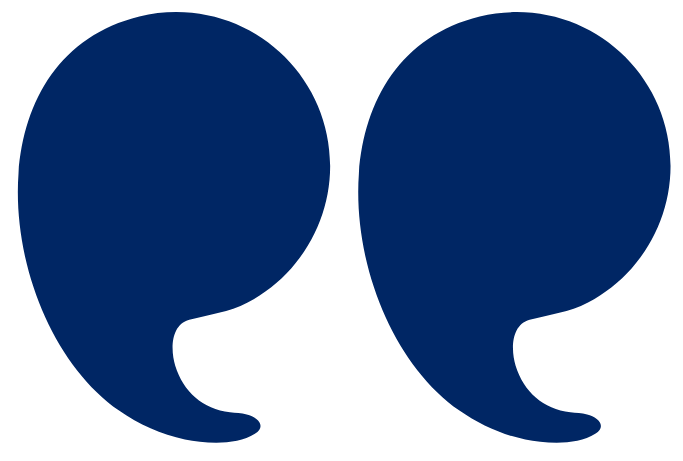
Many health systems prioritise patient safety on paper, but few embed it into daily practice to reduce risk and harm.”
Sir Liam Donaldson
SESSION ONE
Global Patient Safety Action Plan (GPSAP) 2021-2030: Translating Strategy into Action Across Africa and Beyond
The Global Patient Safety Action Plan (GPSAP) offers a powerful roadmap to eliminate avoidable harm, but translating it into action in African contexts requires tailored strategies. This session explores how countries are adapting the GPSAP to local realities—strengthening leadership, systems thinking, workforce capacity, data use, and patient engagement. Through shared experiences and practical tools, participants learn how to embed safety at all levels of the health system.
SPEAKERS AND PANELISTS
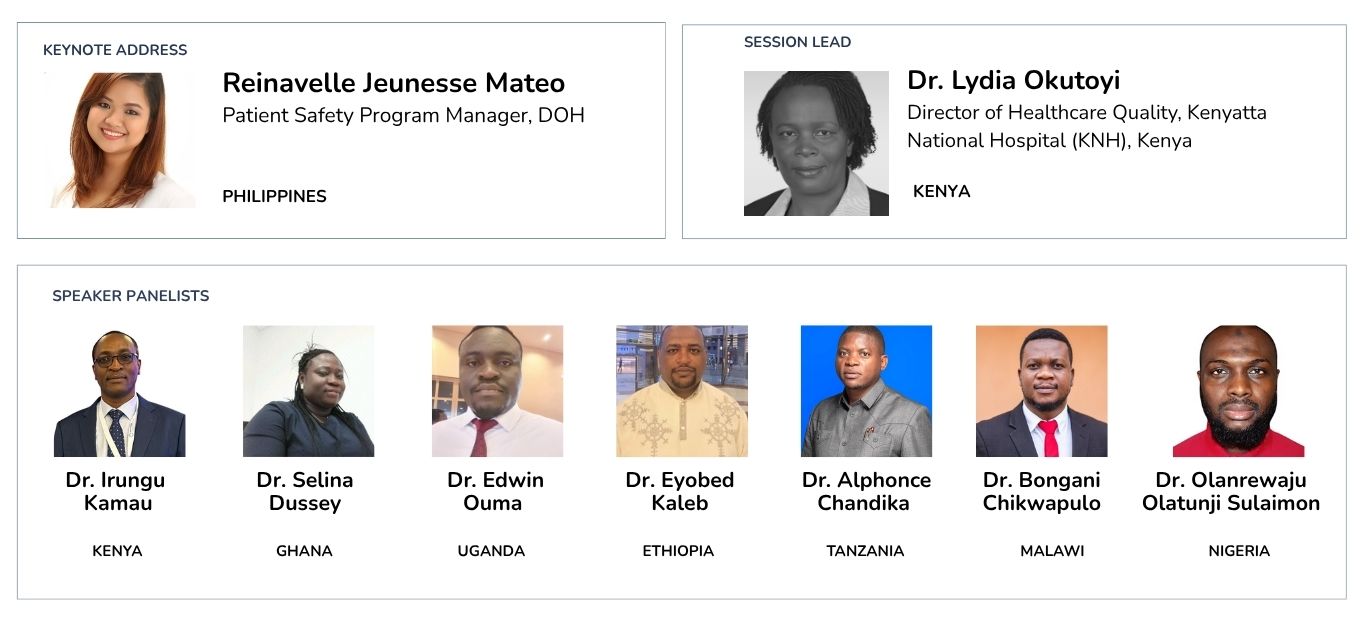

In a world where you can be anything, be kind.”
-Author unknown
SESSION TWO A
Co-Producing Safer Care: Voices from the Ground, Patient and Provider Stories on Co-Creating Safety
Stories bring the human element of co-production to the forefront, challenging assumptions and reconnecting improvement work to the people it serves. Patient and provider narratives illuminate blind spots and shift cultural norms that prevent authentic collaboration. This session recognizes that co-production begins with listening to lived experiences of those who receive and deliver care. Creating space for vulnerability and reflection helps leaders develop relational skills necessary for meaningful partnership.


In a world where you can be anything, be kind.”
-Author unknown
SESSION TWO B
Co-Producing Safer Care: Voices from the Ground, Patient and Provider Stories on Co-Creating Safety
While co-production is widely endorsed as a principle, many health systems struggle to operationalize it due to structural hierarchies, resource constraints, and absence of practical frameworks. Leaders need guidance that bridges theory and practice. This session recognizes that co-production is a skillset requiring training, tools, and institutional support. Moving from values to methods helps embed co-production into daily practice rather than leaving it as an aspirational concept.


Errors must be accepted as evidence of system flaws, not character flaws.
Dr. Lucian Leape
SESSION THREE
From Silence to Safety – Translating Strategy into Action Across Africa and Beyond
To explore current incident reporting mechanisms across African healthcare systems, identify critical barriers and enablers to safe reporting, and map approaches that can transform medical error reporting from punitive silence to transparency.
SPEAKERS AND PANELISTS
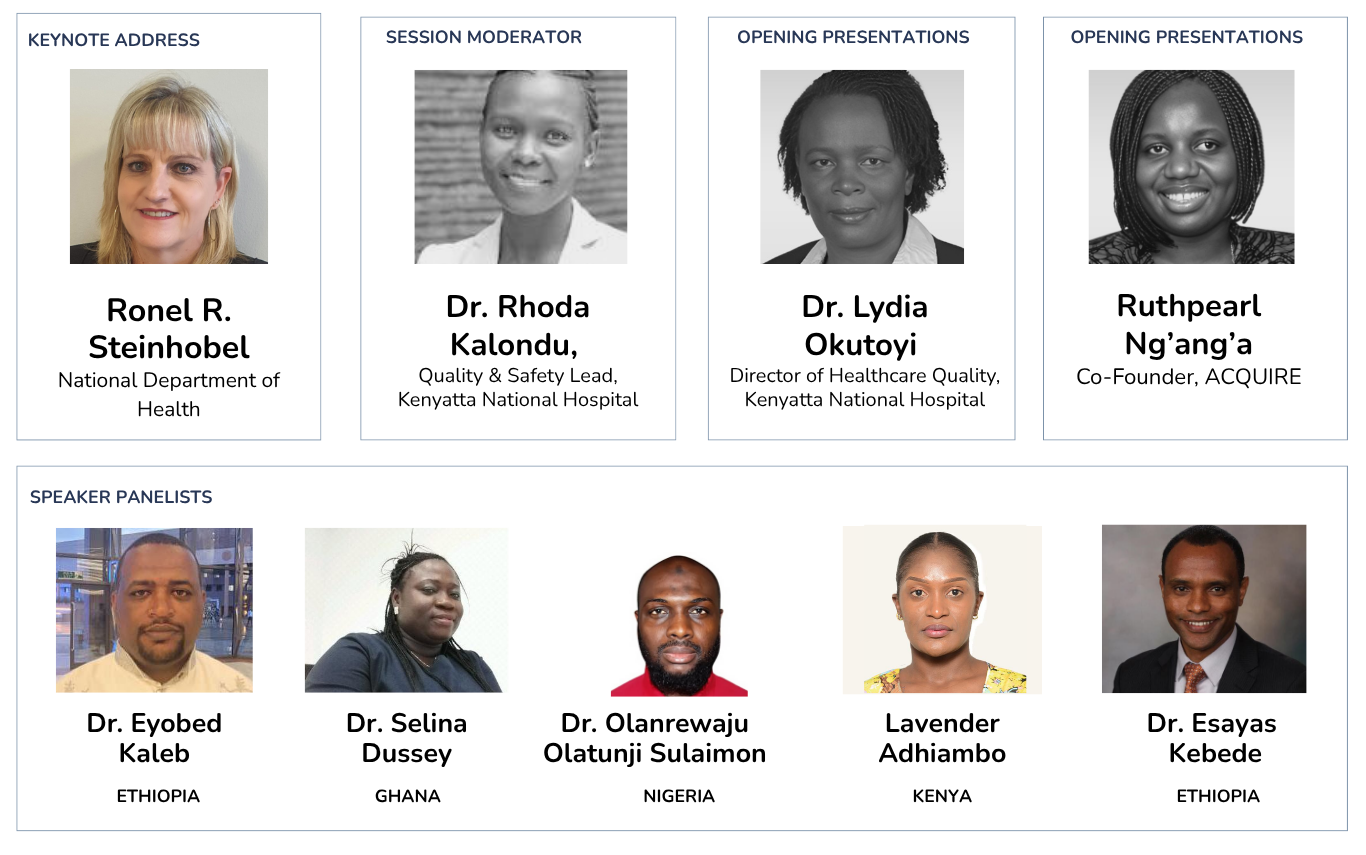

In time, QI should become a basic skill like cardiopulmonary resuscitation; one that all health professionals acquire early in their training”
Training healthcare professionals in quality improvement (PMC, 2019)
SESSION FOUR
Strengthening Capacity for Quality: Training Needs Analysis in Quality Improvement
In the pursuit of safer, people-centered care across sub-Saharan Africa, strengthening the quality competencies of the health workforce is critical. This session focuses on the role of Training Needs Analysis (TNA) in identifying, prioritizing, and addressing knowledge and practice gaps in Quality Improvement (QI) and Patient Safety (PS) training at multiple levels—pre-service, postgraduate, and in-service.
Drawing from a Kenya multi-site study, the session showcases how training institutions, regulators, and ministries can work together to build a health workforce equipped to lead change.
SPEAKERS AND PANELISTS
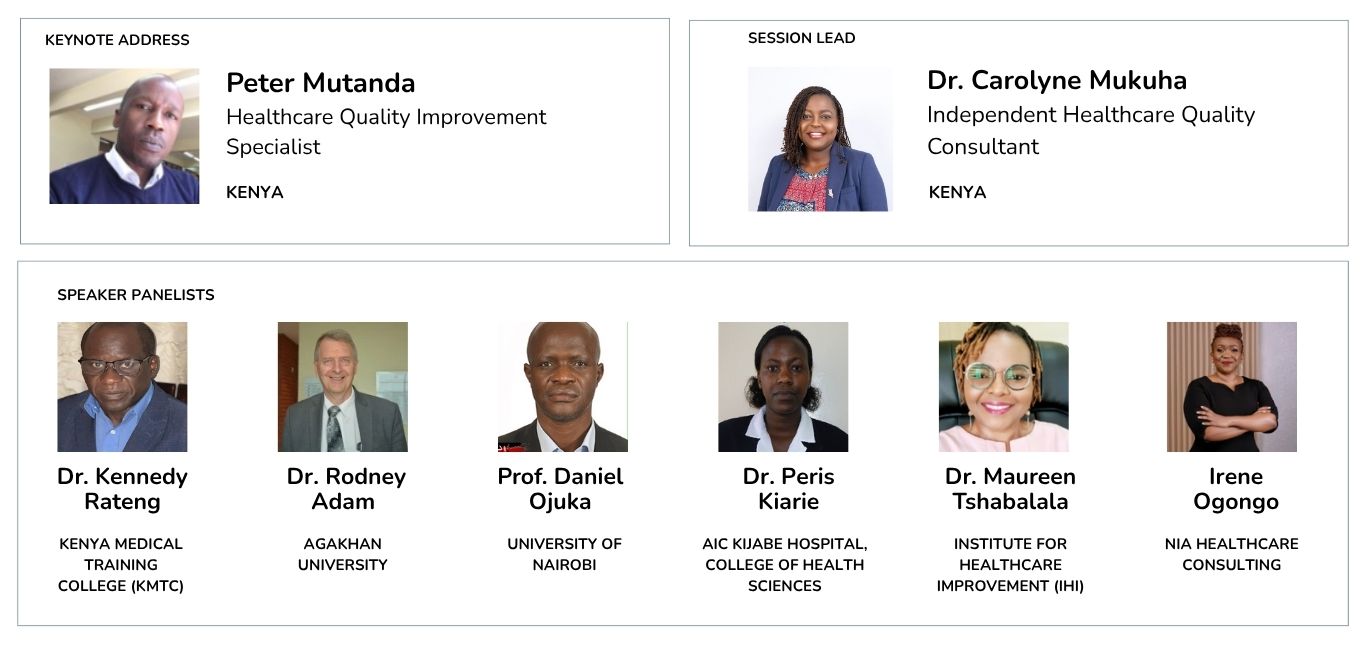

Co‑production is about levelling hierarchies and… sharing risk and responsibility… Good co‑production will always contain elements of lived experience… It’s about sharing risk and responsibility and looking out for each other.”
Anthony O’Connor, Patient Safety Learning consultant
SESSION FIVE
From Quality Assurance to Quality Improvement to Co-Production: A Journey Every Healthcare Worker Should Take
Across Africa and globally, health systems have long relied on Quality Assurance (QA) to ensure compliance with clinical standards and protocols. While essential for standardization, QA can often feel top-down and disconnected from frontline realities. This session explores the evolution from QA to Quality Improvement (QI)—a more participatory, team-driven approach—and onward to Co-Production, where patients, families, and communities are recognized as partners in shaping care.
SPEAKERS AND PANELISTS
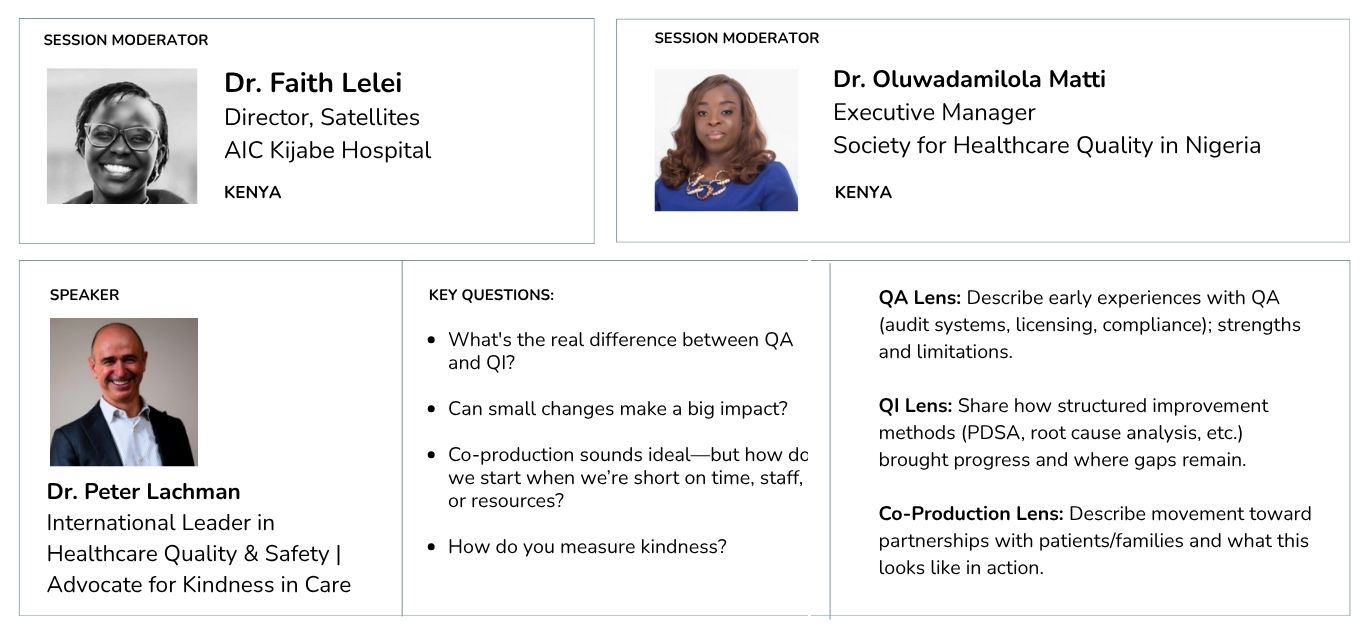

The promise of AI in healthcare is not to make us superhuman but to make us more human by freeing us from tasks that machines can do better.”
Atul Butte
SESSION SIX
Exploring Generative AI’s Role in Enhancing Quality of Care: Exploring How Technology is Enabling Human-Centered Communication, Consent, and Care
This session is designed to spark a grounded, interdisciplinary dialogue on the responsible and impactful integration of Generative AI in healthcare communication, particularly in under-resourced settings. It centers on how AI can support—not substitute—human relationships in care, especially in moments that require clarity, compassion, and collaboration.
SPEAKERS AND PANELISTS
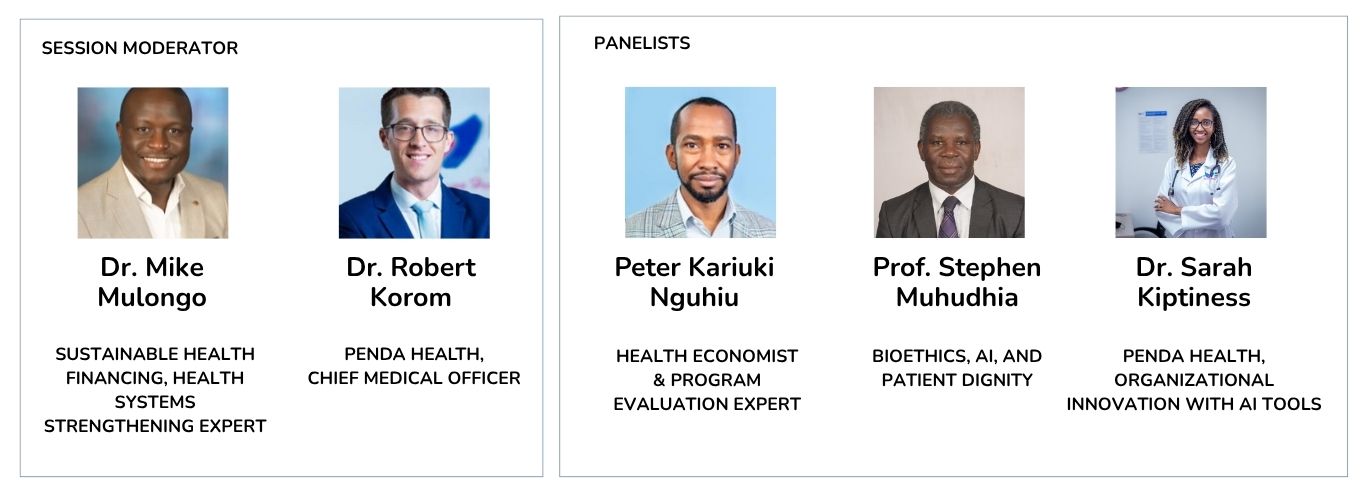

The use of poster presentations is an ideal opportunity to disseminate research findings and clinical innovations.”
Phil Halligan, 2007
SESSION SEVEN
Celebrating Frontline Innovation: Scientific Poster Presentations on Quality Improvement
Across Africa, healthcare workers are engaging in meaningful efforts to improve quality, safety, and patient-centeredness in care delivery. However, many of these initiatives remain undocumented, limiting shared learning across regions and systems. Scientific poster presentations are a valuable mechanism to spotlight this work, encourage knowledge exchange, and foster a culture of inquiry and continuous improvement.
The ACQUIRE Forum aims to provide a platform for professionals at all levels—especially frontline implementers—to transform their quality improvement (QI) and patient safety efforts into scientific recognition. By elevating stories of innovation, kindness, and leadership, the forum helps bridge the gap between practice and publication.
SPEAKERS AND PANELISTS
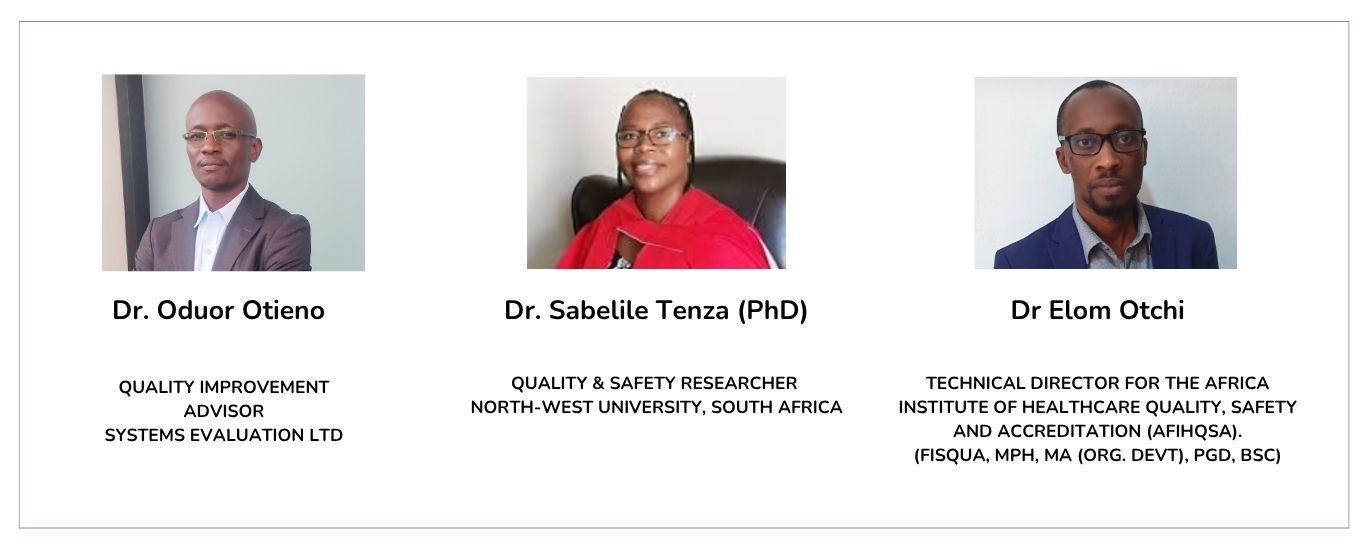
ACQUIRE’s annual QI Leadership Forum is a continent-wide peer-learning platform on Patient Safety and Quality Improvement Practices in Africa. At ACQUIRE, we believe that improvement is a collective journey.
Join us in working towards more responsive, data-led health systems across Africa.
Email us: [email protected]
Connect with us on our social media platforms:
